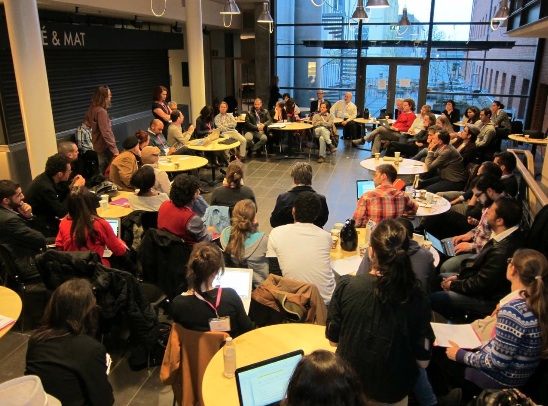Jadaliyya and Lund University`s Center for Middle Eastern Studies are co-sponosring a conference entited "Arab Uprisings: Contestining Narratives, Locating Power," being held in Lund, Sweden, on 25-28 April 2012.
Over the span of two-and-a-half days, over forty scholars, artists, activists, and opposition figures will meet in roundtable formatt to discuss a range of themes, case-studies, and issues related to the Arab uprisings. Those in attendence include Haytham Manna`, Alaa Shehabi, and Nabeel Rajab.
Jadaliyya will be tweeting highlights from the conference (follow the #JadLund) as well as updating this post with text, images, soundbites, and videos.
Conference discussions:
- Locating Power, Spaces, and Paces of Protest
- Political Subjectivities: Agency and Mobilization
- Political Economy and Social Justice
- Globa Connections: Diasporas, Diffusions, and Networks
- Rediscovering Cultural Expression: The Underground, Techniques, and Underground Culture
- Theorizing the Uprisings

[Conference participants during the first session of the conference. Image by Jadaliyya editors]